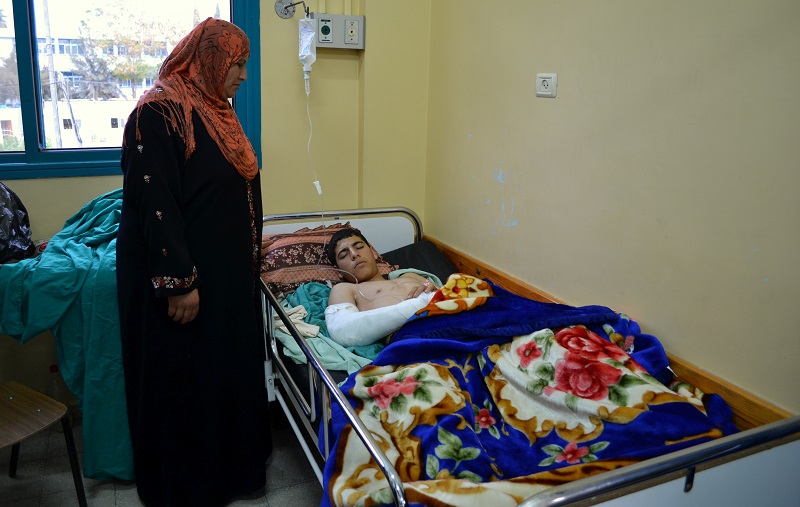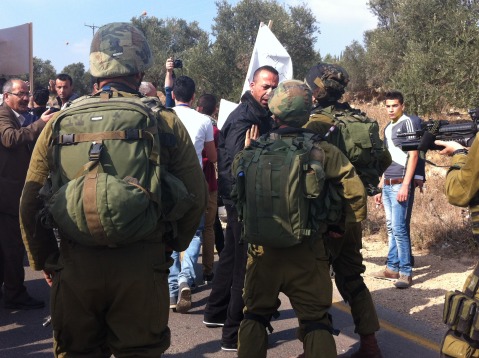Category: Reports
-
Israeli gunfire wounds a Palestinian and injures a child in a resulting accident
25th November 2013 | International Solidarity Movement, Rosa Schiano | Gaza, Occupied Palestine On the afternoon of Friday, 22th November 2013, Mohammed Adel Afana, age 22, was injured by Israeli gunfire east of the Jabaliya refugee camp in the northern Gaza Strip. Adel Afana had gone there with friends. Each Friday, many Palestinians go to the…
-
10 olives trees destroyed in Bruqin
25th November 2013 | International Solidarity Movement, Nablus Team | Bruqin, Occupied Palestine Yesterday in the village of Bruqin, citizens found that approximately 10 olive trees had been severely damaged. The branches were cut with a saw and then pulled off by hand; this method can kill the tree if the damage is not immediately repaired. The…
-
Demonstration in Ya’bad is violently repressed by Israeli forces
21st November 2013 | International Solidarity Movement, Nablus Team | Ya’bad, Occupied Palestine Yesterday in the village of Ya’bad, a peaceful protest was violently repressed by Israeli forces through the use of tear gas canisters, stun grenades and rubber-coated steel bullets. Demonstrators were directly targeted by Israeli soldiers, five Palestinians were injured and two were…



